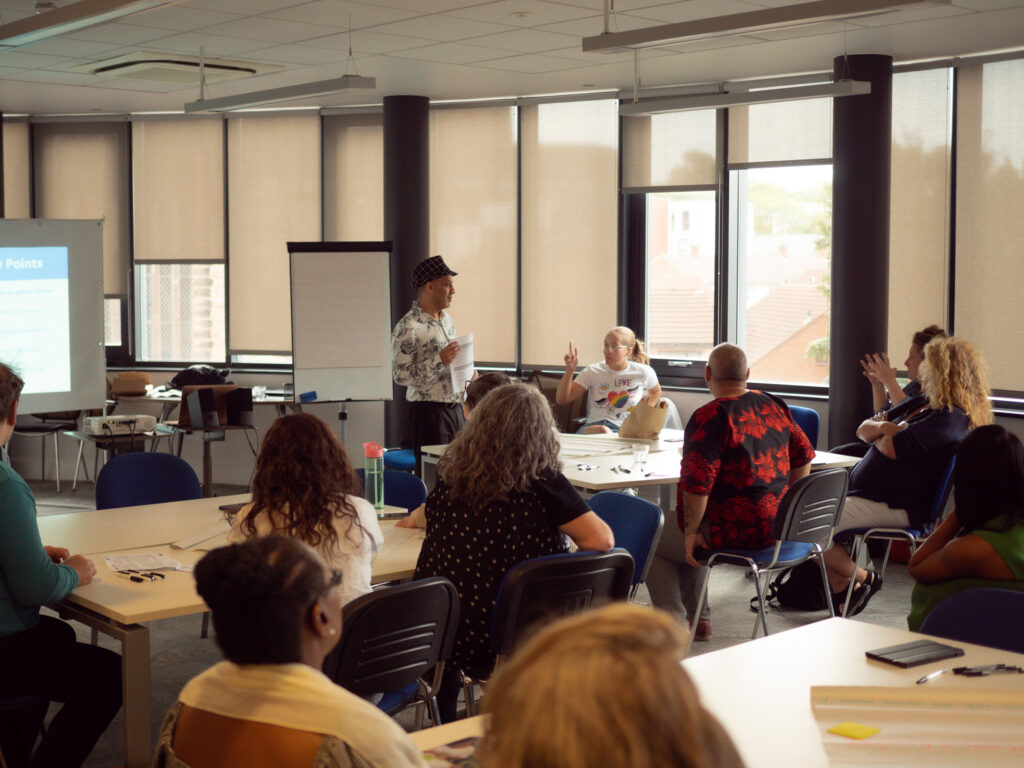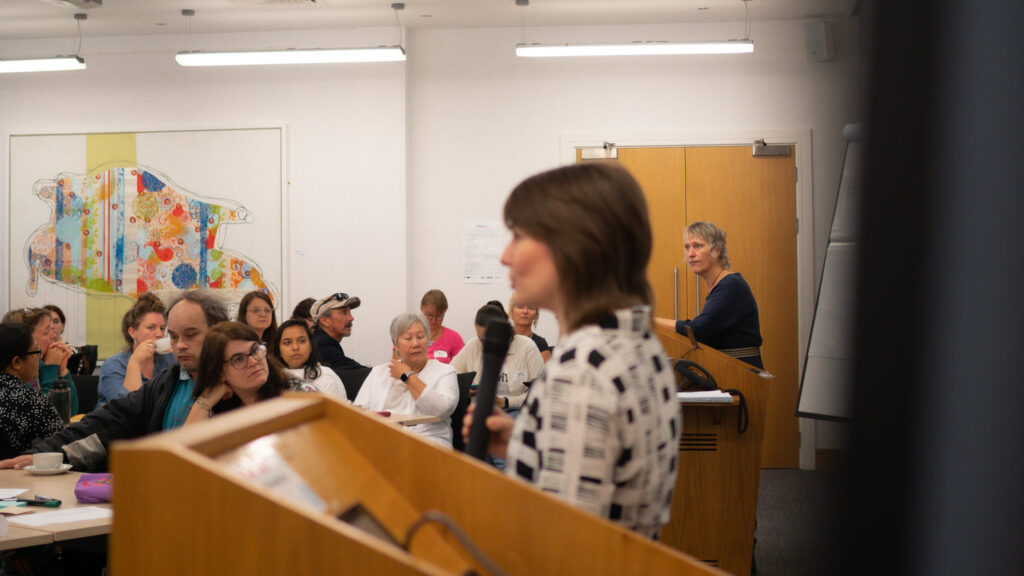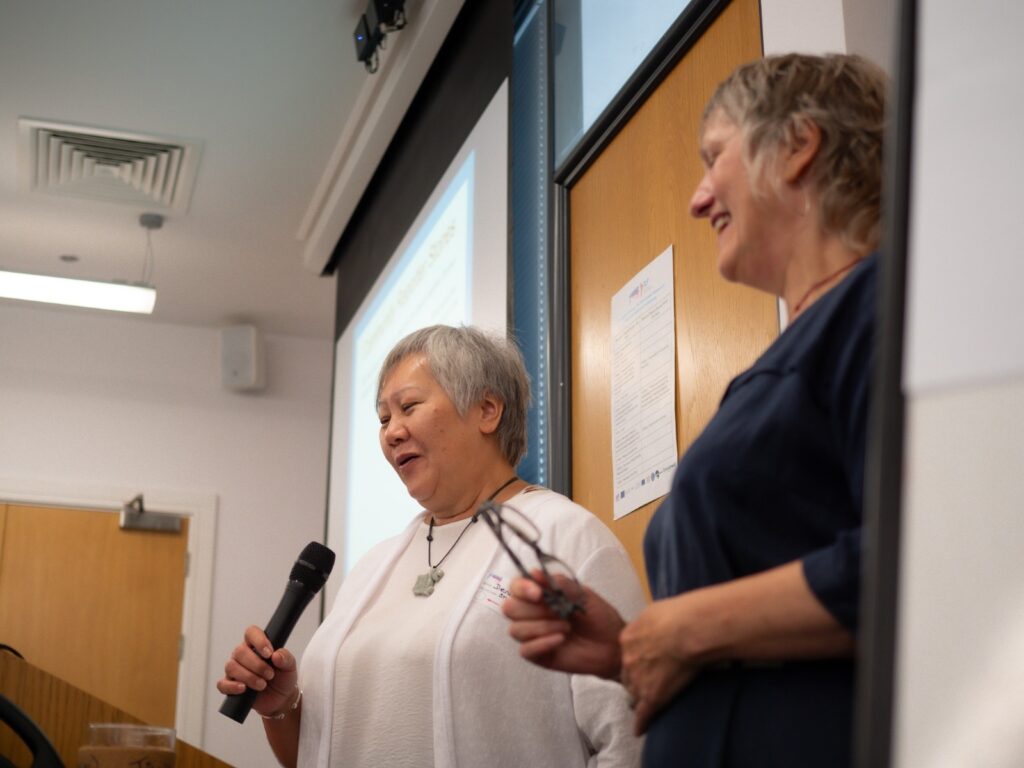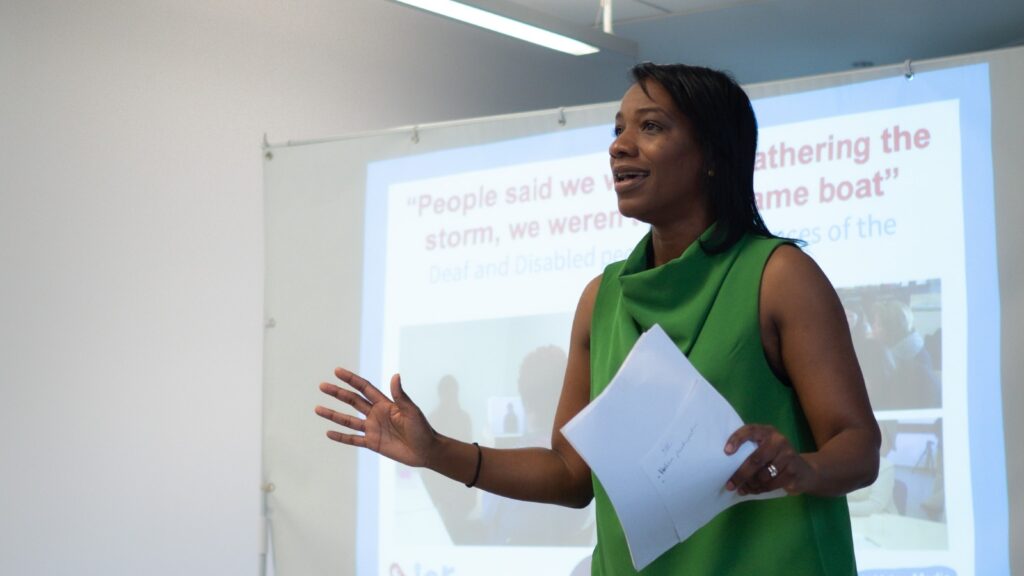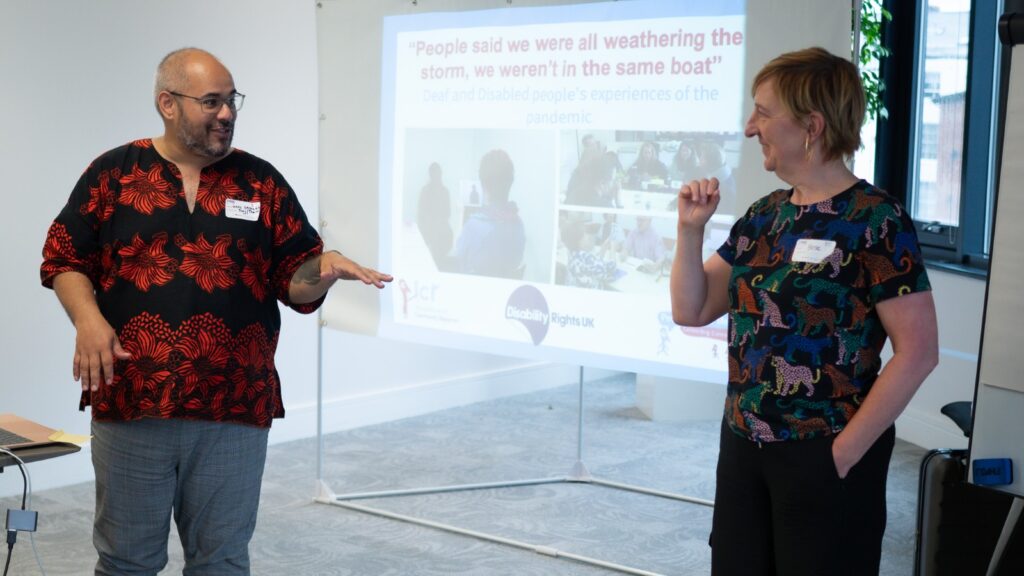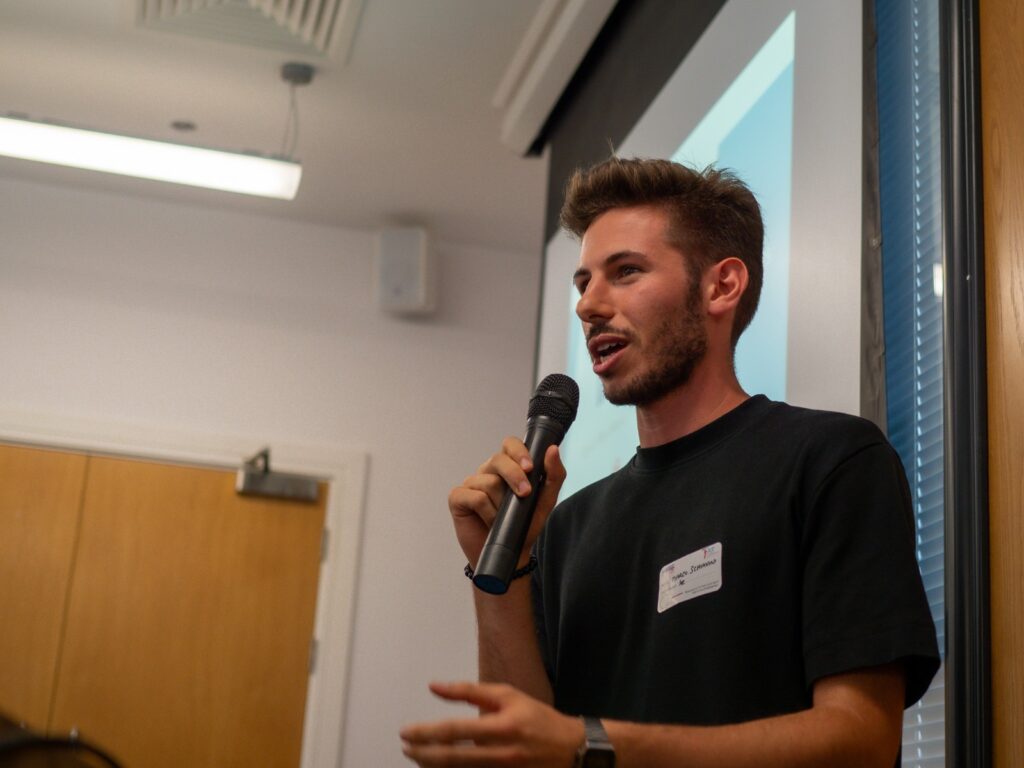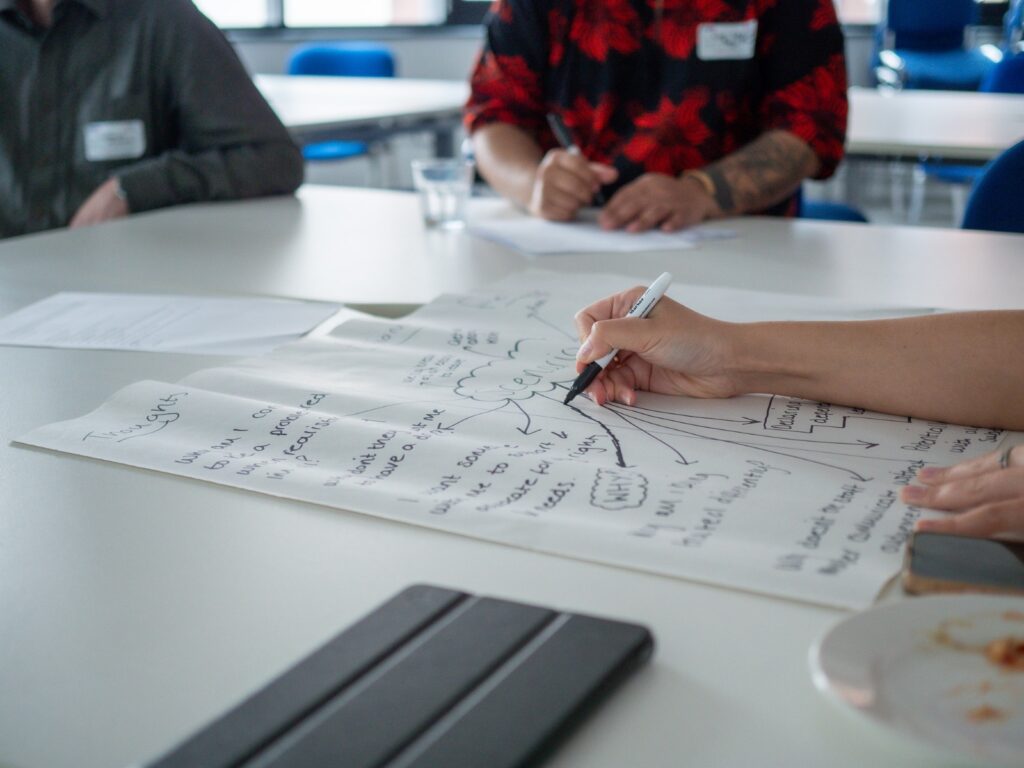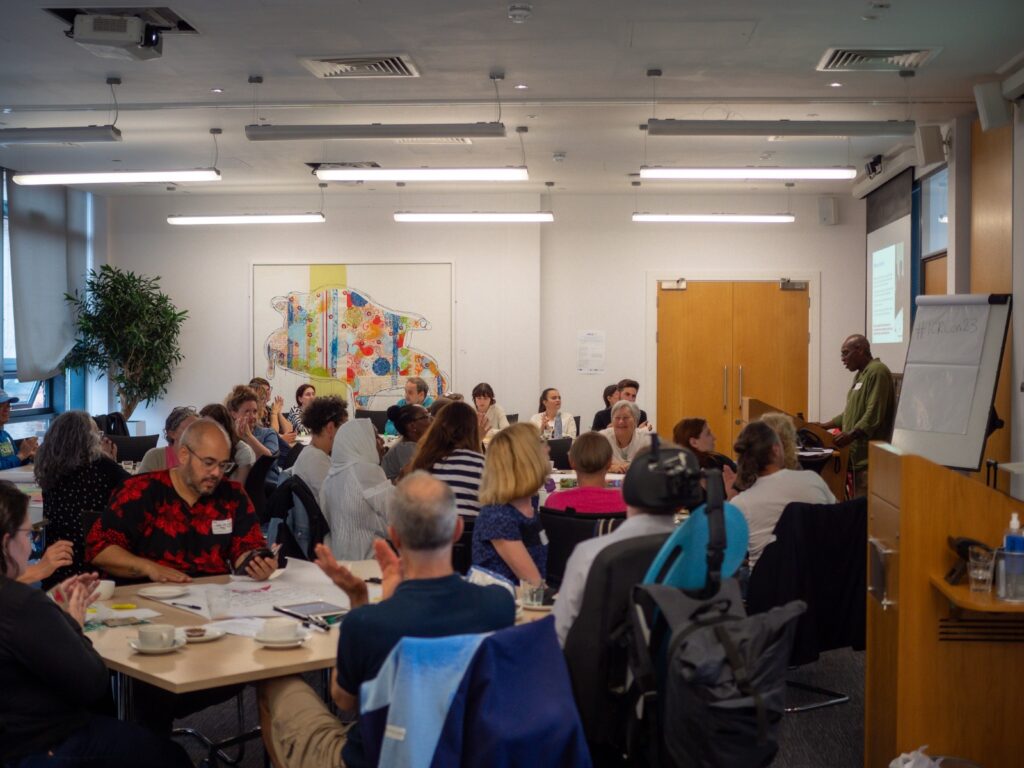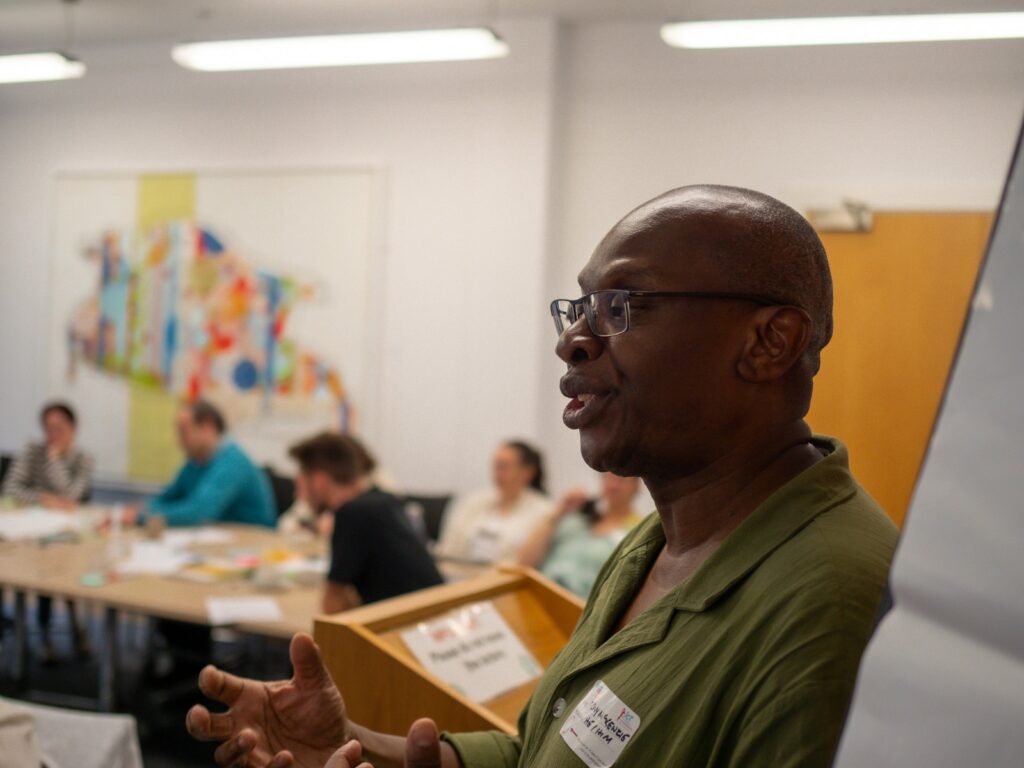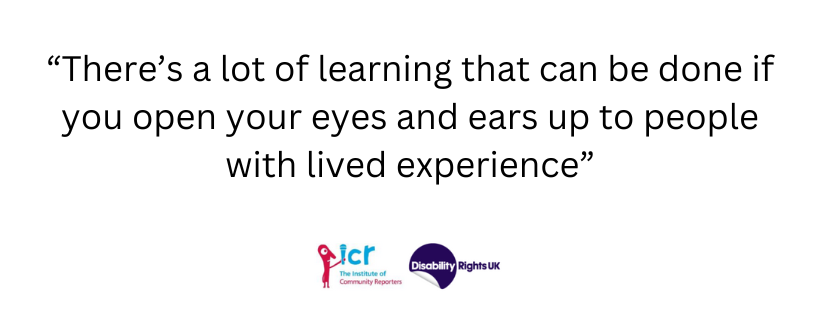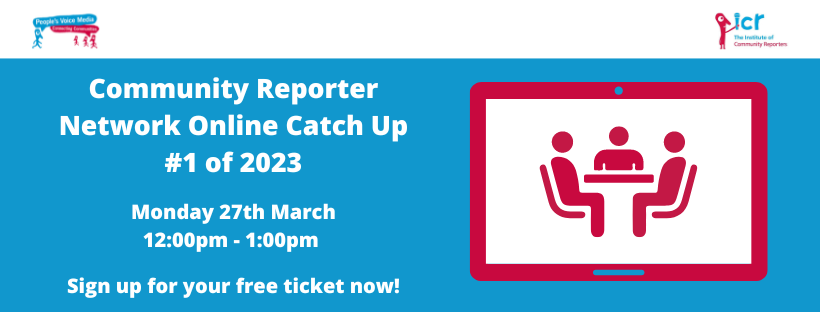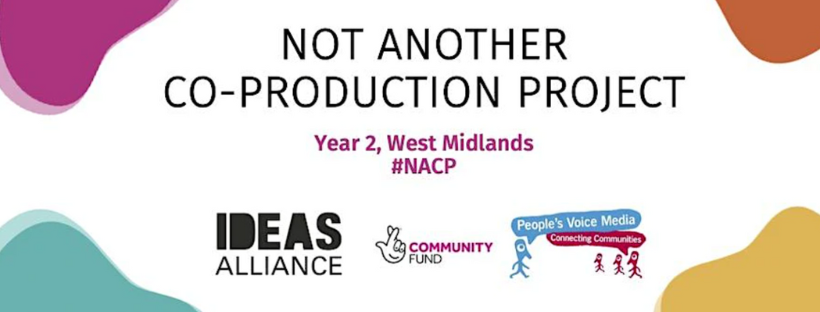COMMUNITY REPORTER NETWORK CONFERENCE 2023: THAT’S A WRAP!
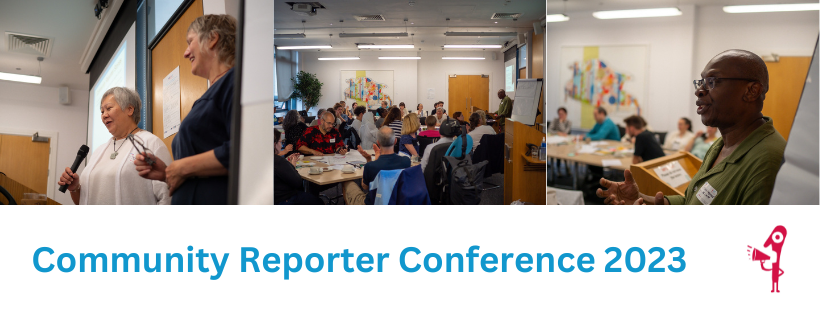
Back in July, PVM hosted our 5th annual Community Reporter Network Conference at 54 St James Street in Liverpool.
The day included a series of workshops which explored community reporting and lived experience storytelling, with a focus on creating equitable futures.
We were joined by members of the community reporter network, project partners, and people from across the UK and Europe. It was great seeing so many faces, some familiar and some brand new to the movement.
The day kicked off with two workshops, one focusing on sharing the findings of the HOME? Project and the other providing an introduction to Community Reporting (the storytelling technique we use here at PVM).
After a short morning break we got stuck into exploring the finding of the EUARENAS Project , sharing the recently published city of the future map. The map lays out a vision of a future city where participatory democracy has been able to thrive – you can view the map and find out more by following the hyperlink above.
Disability Rights UK showcased the findings from a storytelling project looking at the impact of the COVID-19 Pandemic on Deaf and Disabled People. They invited people in the space to think about our own role in restorative practice as society recovers from the pandemic. It was an important and thought provoking session and a huge thank you goes out to the staff and storytellers for their time, energy and commitment to the project.
After lunch we delved into the future of data collection and impact measurement – exploring how people’s voices can play an integral role in measuring change in communities. PVM and NOI Project project partners shared techniques from their recently published toolkit (the culmination of the 3 year project) demonstrating how storytelling can be used as a tool for measuring change.
Our friends at Groundswell captivated the room with an interactive workshop exploring the complexities of advocating for your rights while experiencing homelessness. Through providing real world scenarios, they created an environment in which you could place yourself in the position of someone experiencing homelessness trying to access support for your health. An eye opening session which highlighted the challenges and systems people are forced to navigate when placed in a vulnerable positions.
“I left feeling enthused, enamored and engaged in the ideals of making the world more Equitable! So thank you for conveying and holding the space so beautifully.”
Conference Attendee
“The entire conference and the people who ran it were really good, I definitely came away feeling assured that there are some wonderful groups around the country thank you.”
Conference Attendee
We’re now in the process of gathering feedback on the conference. The team are currently conducting reflective interviews with the people who attended. These experiences will feed into creating next years conference, along with the thoughts and suggestions collected during the ‘Future of Community Reporting’ workshop which ended the days activities.
We can’t wait to hear about how people found the day and feel excited about getting started with the planning of next year’s conference.
Keep your eyes peeled on our social media pages and the blog, as we’ll be announcing updates on the next CR catch up which is taking place later this year.
Until then, that’s a wrap from us!
